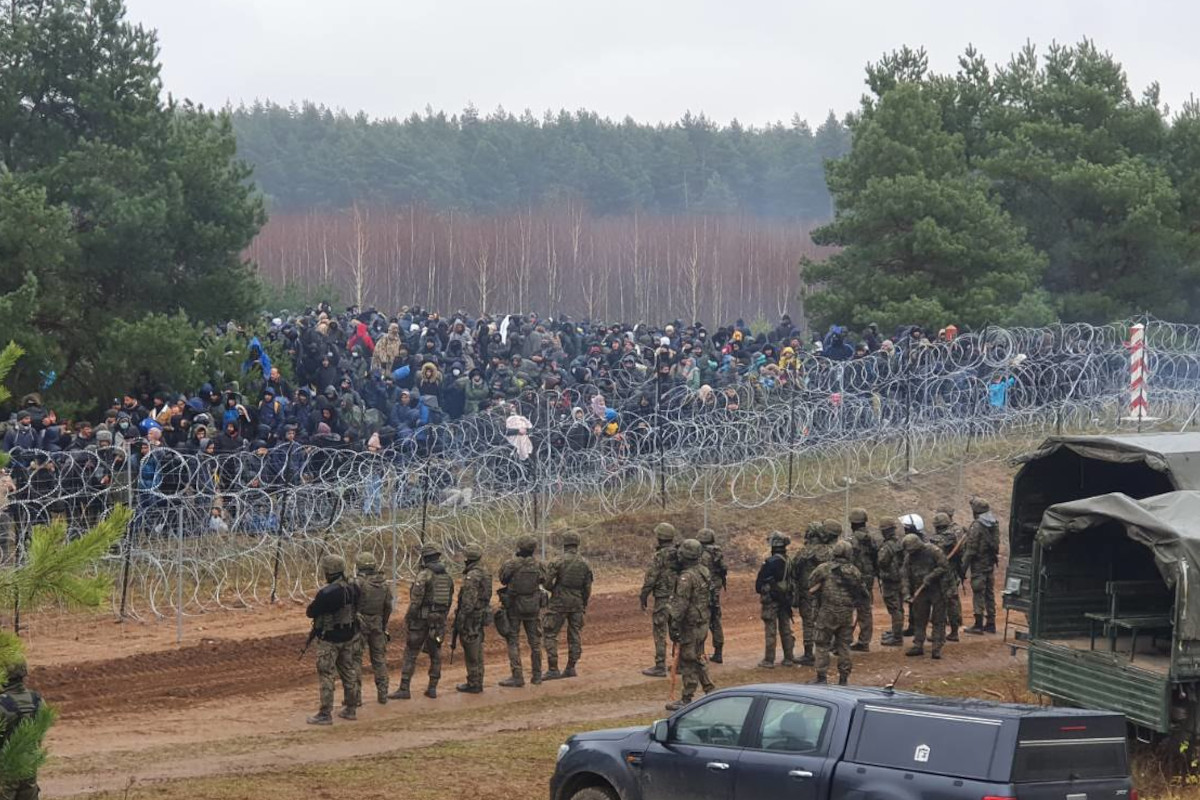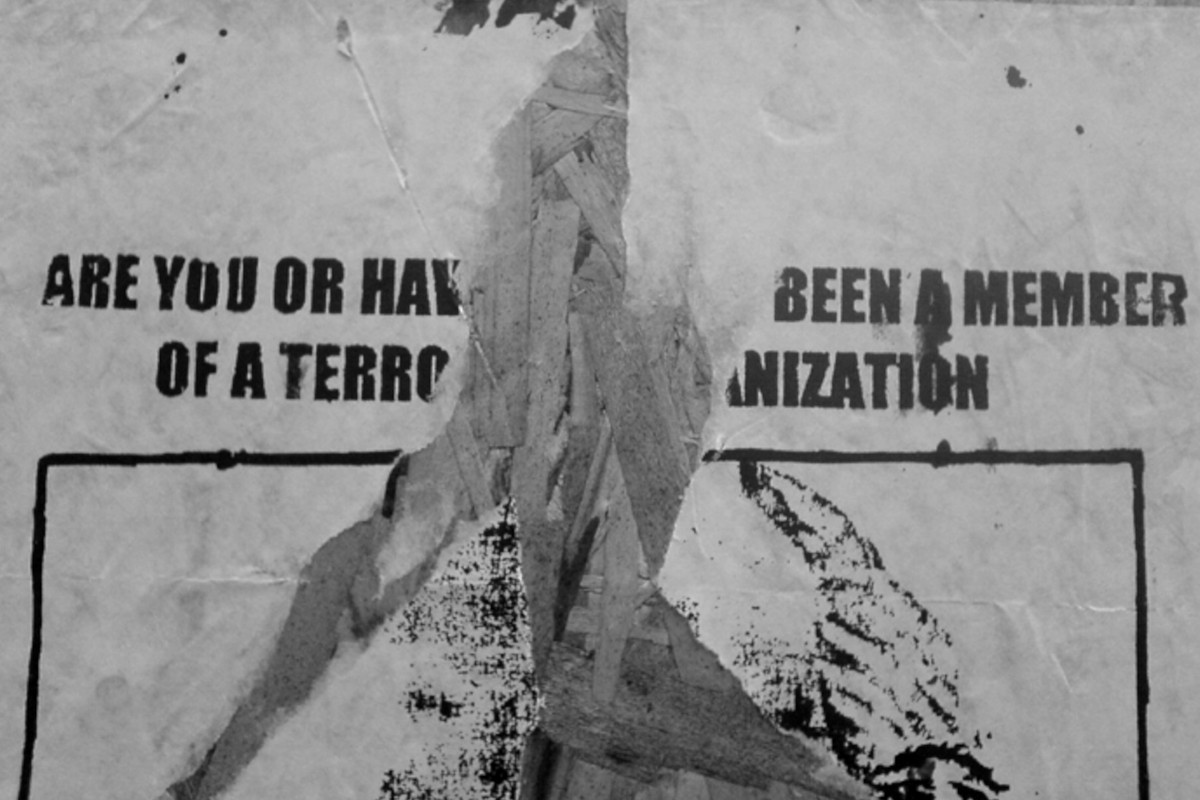Europol migrant smuggling proposal torn to shreds by the Council
Topic
Country/Region
10 May 2024
The Belgian Presidency of the Council of the EU has proposed gutting the Commission’s proposal to increase Europol’s powers in human smuggling and trafficking cases. There is little that remains of the original proposal, aside from new “Operational Task Forces” led by member states (with a support role given to Europol) and a limited mandatory exchange of information on smuggling and trafficking investigations.
Support our work: become a Friend of Statewatch from as little as £1/€1 per month.
Putting Europol back in its place
According to the Commission, the “overall objective of [the proposed Regulation] is to reinforce Europol’s role in the fight against migrant smuggling and trafficking in human beings, and, in particular, the role of the European Centre Against Migrant Smuggling.”
Shortly after the proposal was published, Statewatch reported that it hid an extensive power grab. Nor was the proposal welcomed by member states, who questioned its necessity, proportionality, and the need to give priority to smuggling and trafficking over other crimes such as terrorism.
In mid-April, in lieu of a formal impact assessment, the Commission published an “analytical document” meant to bring “more detailed information on the facts and figures” behind the proposal. This was either not enough, as argued here, or came too late to change member states' minds.
Compromise text
The Belgian Presidency, following discussions amongst and comments from delegations, prepared a first compromise proposal (pdf) that “suggests to delete the entire new Regulation” and only to keep minimal additions to the existing Regulation governing Europol.
The Commission proposed extensive text on the European Centre Against Migrant Smuggling; the Presidency proposal says that Europol should develop “centres of specialised expertise for combating certain types of crime falling within the scope of Europol’s objectives, including the European Cybercrime Centre and the European Migrant Smuggling Centre.” However, the compromise text retains a requirement for both Frontex and Eurojust to have permanent representatives at the centre.
The new Operational Task Forces have been kept in the Belgian text, but the power to set them up remains in the hands of the member states, rather than with Europol’s executive director, as in the Commission’s proposal.
An Operational Task Force has been redefined as a:
“...temporary group set up by Member States among their competent authorities with the support of Europol to conduct facilitate coordinated and prioritised criminal intelligence activities and investigations into a crime falling within the scope of Europol’s objectives that requires coordinated and concerted action.” [strikethrough and emphasis in original]
The role of the agency will be “to provide analytical, operational, technical and forensic support in liaison and in agreement with the competent authorities of that Member State,” but also to “support Member State with the effective and efficient processing of biometric data.” A “voluntary reserve pool of Member States’ experts” will be set up to assist operational task force (emphasis in original).
No additional staff or funding will be provided, as Europol will keep its role of supporting member state operations rather than launching its own.
Limited exchange of information
The Commission’s analytical document fervently defended the introduction of mandatory requirement for the member states and Europol to exchange information on smuggling and trafficking cases, arguing that the lack of such a requirement is “the most important problem that hinders effective cooperation”.
The Belgian proposal adapts the obligation, leaving some leeway for member states to decide on when to provide information.
The compromise text proposes a loose obligation for member states to “provide Europol with information held by its competent authorities and relating to criminal offences on migrant smuggling and trafficking in human beings” in a “timely manner.”
In the context of an Operational Task Force, however, a member state:
“…shall provide all relevant information without delay to Europol and to the other Member States setting up, participating in, or supporting the operational task force, using SIENA and, where appropriate, make information directly accessible… including information related to parallel financial investigations to identify and seize criminal assets.”
SIENA is the acronym for the Secure Information Exchange Network Application that enables the exchange of information between Europol, member states, and third parties with which Europol has a cooperation agreements.
In line with the existing Europol Regulation, the compromise text would not oblige member states to supply information in cases that would:
“(a) be contrary to the essential interests of the security of the Member State concerned;
(b) jeopardise the success of an ongoing investigation or the safety of an individual; or
(c) disclose information relating to organisations or specific intelligence activities in the field of national security.”
In the context of cooperation with third countries, the compromise text maintains provisions on immigration liaison officers deployed by member states. Immigration liaison officers shall be connected to SIENA. If this is not possible due to “imperative technical reasons related to the situation in the third country of deployment” the officer shall submit the information, not limited to crimes concerning smuggling and trafficking, to the national competent authority that will provide it to Europol.
The Presidency's compromise proposal was discussed in the Council's Law Enforcement Working Party (Police) earlier this week, on 8 May.
Documentation
- Proposal for a REGULATION OF THE EUROPEAN PARLIAMENT AND OF THE COUNCIL on enhancing police cooperation in relation to the prevention, detection and investigation of migrant smuggling and trafficking in human beings, and on enhancing Europol’s support to preventing and combating such crimes and amending Regulation (EU) 2016/794 - Presidency compromise text (Council doc. 9488/24, LIMITE, 30 April 2024, pdf)
Our work is only possible with your support.
Become a Friend of Statewatch from as little as £1/€1 per month.
Further reading

Putting the cart before the horse: the Commission’s proposal to increase Europol's powers
Hounded by criticism from civil society and EU member states over its new proposal to increase the powers of Europol, the European Commission has belatedly published an “analytical document” in lieu of a formal impact assessment. The new proposal would lead to the storage of vast quantities of information by Europol on human smuggling and trafficking cases, intended to increase investigations and prosecutions. However, the Commission’s document offers a minimal analysis of the potential impact on individual rights, particularly of people in vulnerable situations, and the data protection safeguards at Europol are inadequate for the proposed changes.

No real safeguards for new Europol data powers, says data protection authority
A new proposal to enhance the powers of Europol and to strengthen its cooperation with Frontex in the name of fighting migrant smuggling falls short of respecting data protection and fundamental rights standards, according to the European Data Protection Supervisor (EDPS).

New powers for Europol: proposal gets frosty reception from member states
At the end of November the Commission proposed expanding Europol’s powers, in the name of fighting migrant smuggling. Member states have started discussing the proposal in the Council. Written comments obtained by Statewatch suggest that the plans have not been well-received in national capitals.
Spotted an error? If you've spotted a problem with this page, just click once to let us know.


